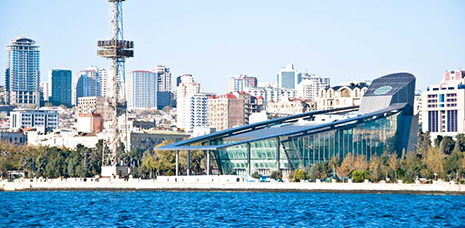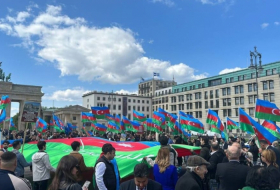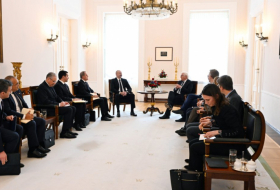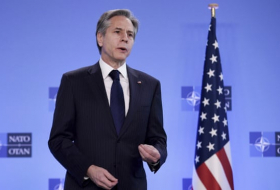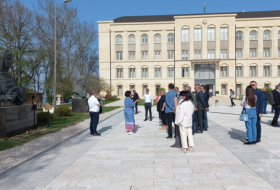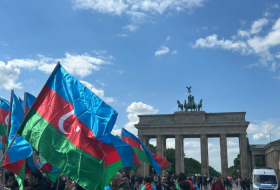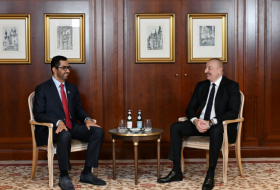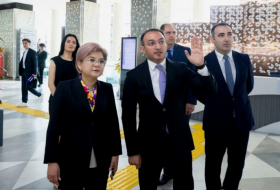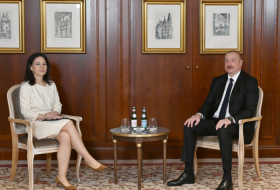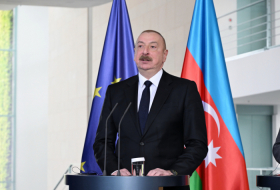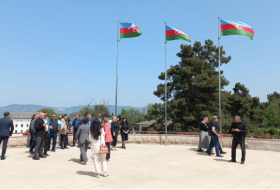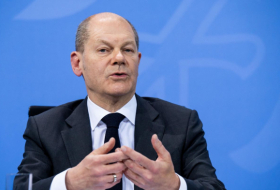Now, with the country's post-Soviet economy fraying and a restive population facing energy shortages this winter, the tale of the Nobel family symbolizes the promise of wealth from another energy boom on the shores of the Caspian Sea and a hope that oil money will once again flow.
''The Nobels are a very big part of Azerbaijan history, but few people outside the country know about it,'' said Erdal Otuzbir, who serves as Swedish consul and who is trying to persuade foreign oil companies to help restore the Nobel company town.
Its remains lie on the outskirts of Baku, in the shadow of modern oil storage tanks and depots. A stone mansion known as Villa Nobel sits in ruins on a trash-covered lot, its floors rotting and plaster gone from the walls of its once majestic rooms. Nearby, at what was once the country's largest theater, only the exterior walls have remained standing since a 1983 fire.
In its heyday, the neighborhood was officially called Villa Petrolea. But everyone knew it as Black Town because of the immense clouds of soot that spewed from its refineries. Fuad Akhundov, a local amateur historian, wrote that travelers compared visiting Black Town to stepping inside a chimney.
The Nobels came to Baku by accident. In 1873, Robert Nobel -- the brother of Alfred, who invented dynamite and later endowed the Nobel Prizes -- was sent south from Russia to find walnut trees to use as stocks for rifles that the family was manufacturing for the czar's army.
Instead, he stumbled on a fledgling oil industry on the shores of the Caspian. The world was in the first stages of oil fever, and the market was dominated by John D. Rockefeller and Standard Oil. Mr. Nobel was so captivated that he spent the ''walnut money'' to buy a small refinery and a kerosene plant.
Alfred Nobel, a chemist, was skeptical of the project, but Robert persuaded the third brother, Ludwig, to come to Baku and help.
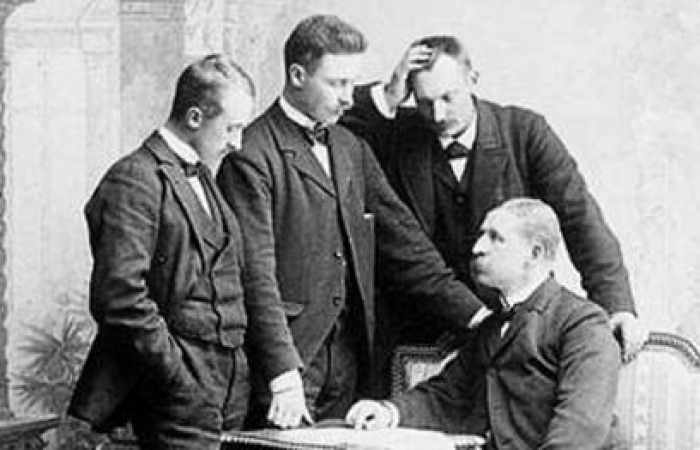
They leased fields for drilling and consolidated refinery operations. By the time the Nobel Brothers' Oil Producing Company was officially formed in 1879, it dominated the business in Baku.
Baku grew quickly into the major supplier of oil and oil-related products for Europe, China, India and Iran. By 1900, it was providing nearly half the world's oil, with most of the rest coming from the United States. So many wood-encased oil rigs had popped up along the Caspian shore that they became known as the Forest of the Nobels.
The family's technical skill introduced many innovations, including the first pipelines to move oil from the fields to refineries.
When rail prices between Baku and its markets rose too high, the Nobels commissioned the first steam-powered tanker, a metal-hulled ship called the Zoroaster, in honor of the founder of the religion, which employs fire in its rituals. The company's fleet eventually numbered more than 130 vessels.
The ships played a pivotal role in another great Nobel project -- the creation of a park in the heart of Black Town. Baku is on an arid peninsula with little natural vegetation. In the 1880's, according to Mr. Akhundov, Ludwig Nobel ordered all of the company's ships that took oil to Iran filled with fertile soil for the return trip.
The soil was used to build a 25-acre seaside park. The Nobels then hired a European botanist to import plants and trees from elsewhere in Azerbaijan and around the world. The ships were then used to transport clean water for irrigating the park on their return voyages. Within the park, the family built its mansion, Villa Nobel, as well as housing for workers, administrative offices, a hospital and a huge theater.
Family records show occasional conflicts over how to run the company. Alfred, who never came to Baku, sent letters demanding greater efficiency, and the oil profits helped make the Nobels one of the world's richest families.
Their success attracted rivals, including the Dutch and the British and the Rothschilds from France. But in 1917, the Bolshevik Revolution forced the foreign companies to shut down, and the Nobels and others had to leave the country.
Baku remained a large oil supplier, and taking control of the oil fields was one of Hitler's objectives when he invaded the Soviet Union in 1941. But after World War II, production declined and so did the glories of Black Town.
Mr. Otuzbir, the honorary Swedish consul, is managing director of Azercell, the largest mobile telephone company in Azerbaijan. He has been using his political and business contacts to organize support for refurbishing the villa as a museum and restoring other parts of the park.
President Heydar Aliyev and the municipal government have endorsed the plan, but money is tight for the government. Mr. Otuzbir knows he has to raise the funds from the foreign companies that have replaced the Nobels.
Looking at the remains of Villa Nobel the other day, Mr. Otuzbir was cautiously optimistic. ''It's the history of oil, so the companies should be interested in remembering it,'' he said.
/Ny Times/
More about: #Baku #Azerbaijan #Nobel








